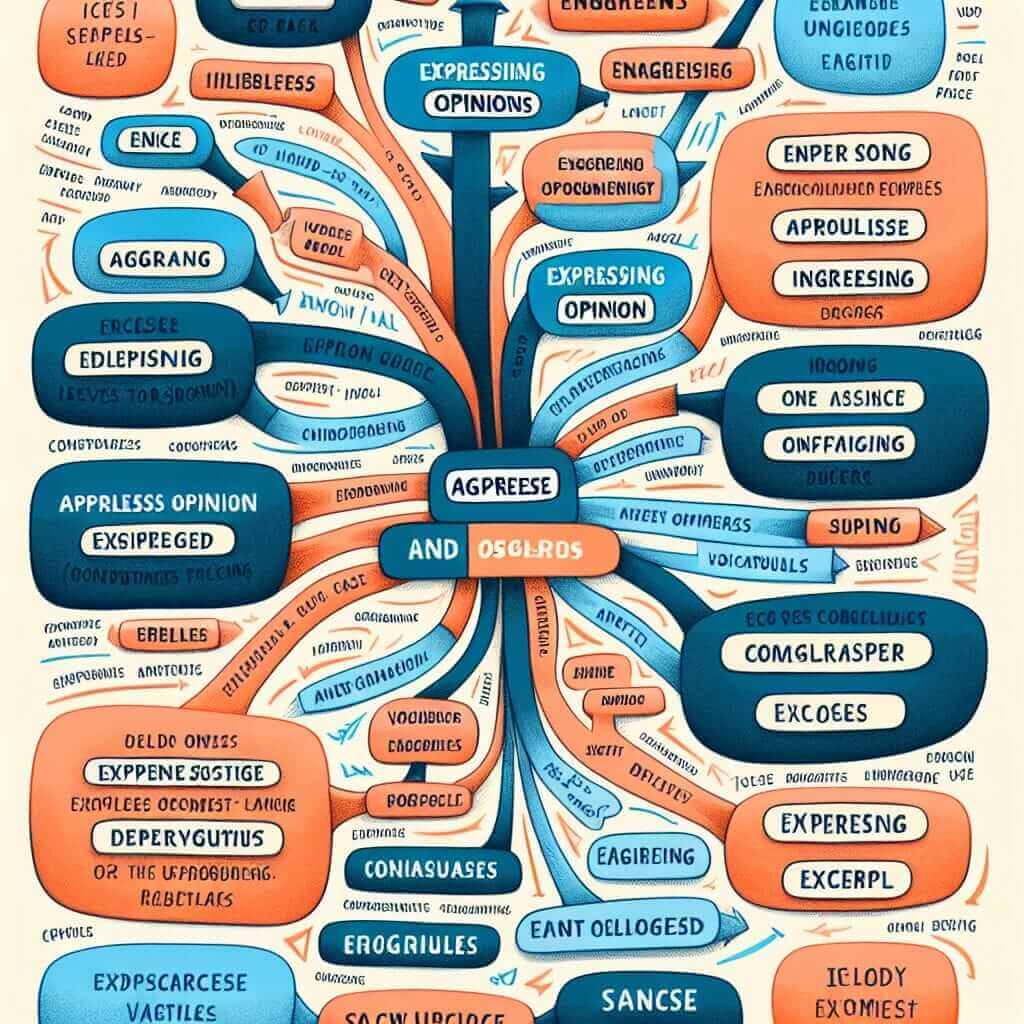“In my opinion” is a common phrase used to express personal viewpoints, especially in IELTS Writing Task 2. While it’s not incorrect, overusing it can make your writing sound repetitive and lacking in sophistication. This article will guide you on how to use “in my opinion” effectively and introduce you to a range of synonyms and alternative expressions to enhance your lexical resource score.
Let’s examine a few examples of how “in my opinion” might be used in IELTS Writing tasks:
Example 1: (Task 2 – Discuss both views)
- Some people believe that technology has made our lives easier. Others argue that it has made life more complex. Discuss both views and give your own opinion.
Possible answer: “In my opinion, technology has both simplified and complicated our lives…”
Example 2: (Task 1 – Letter)
- You recently attended a language course. Write a letter to the course director expressing your opinion about the course.
Possible answer: “In my opinion, the course was well-structured and highly beneficial…”
Example 3: (Task 2 – Agree/Disagree)
- Some people think that children should be allowed to use mobile phones in school. To what extent do you agree or disagree?
Possible answer: “I strongly disagree that children should use mobile phones at school. In my opinion, this policy would be too distracting…”
As demonstrated, “in my opinion” effectively introduces your stance in different IELTS Writing tasks. However, varied and sophisticated vocabulary is key to achieving a higher score.
Understanding the Use of “In My Opinion”
“In my opinion” signals a personal viewpoint or belief. While acceptable in IELTS, using it repeatedly can make your writing monotonous. Examiners look for a range of vocabulary and grammatical structures. Therefore, it’s crucial to have other expressions at your disposal.
Alternatives to “In My Opinion”
Here are some alternatives categorized by their formality level:
Formal:
- It is my belief that…
- From my perspective…
- I am of the view that…
- My standpoint on this issue is…
- It seems to me that…
Semi-formal:
- I think that…
- I believe that…
- I feel that…
- I would argue that…
- It’s my view that…
Informal (use cautiously in IELTS):
- I guess…
- I reckon…
- I suppose…
Applying Alternatives in IELTS Writing
Let’s revisit the previous examples and incorporate some alternatives:
Example 1 (Revised): “From my perspective, technology has both simplified and complicated our lives…”
Example 2 (Revised): “I believe that the course was well-structured and highly beneficial…”
Example 3 (Revised): “I strongly disagree that children should use mobile phones at school. It is my belief that this policy would be too distracting…”
By using these alternatives, your writing becomes more engaging and demonstrates a wider vocabulary range.

Common Mistakes and How to Avoid Them
- Overusing “in my opinion”: Limit its use to once per essay, preferably in the introduction or conclusion.
- Informal language: Avoid expressions like “I guess” or “I reckon” as they lack academic formality.
- Incorrect grammar: Ensure the phrase is grammatically correct and doesn’t disrupt the sentence flow.
Conclusion
While “in my opinion” is grammatically correct, using synonyms and alternative expressions enriches your writing and helps achieve a higher IELTS score. Remember to maintain a formal tone and practice incorporating these phrases naturally in your writing.
To further expand your vocabulary for expressing opinions, you might find this article on using “to my mind” helpful: [link to https://www.ielts.net/use-of-to-my-mind-for-opinion/]